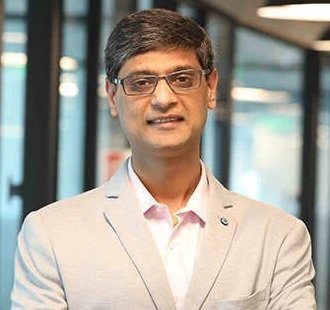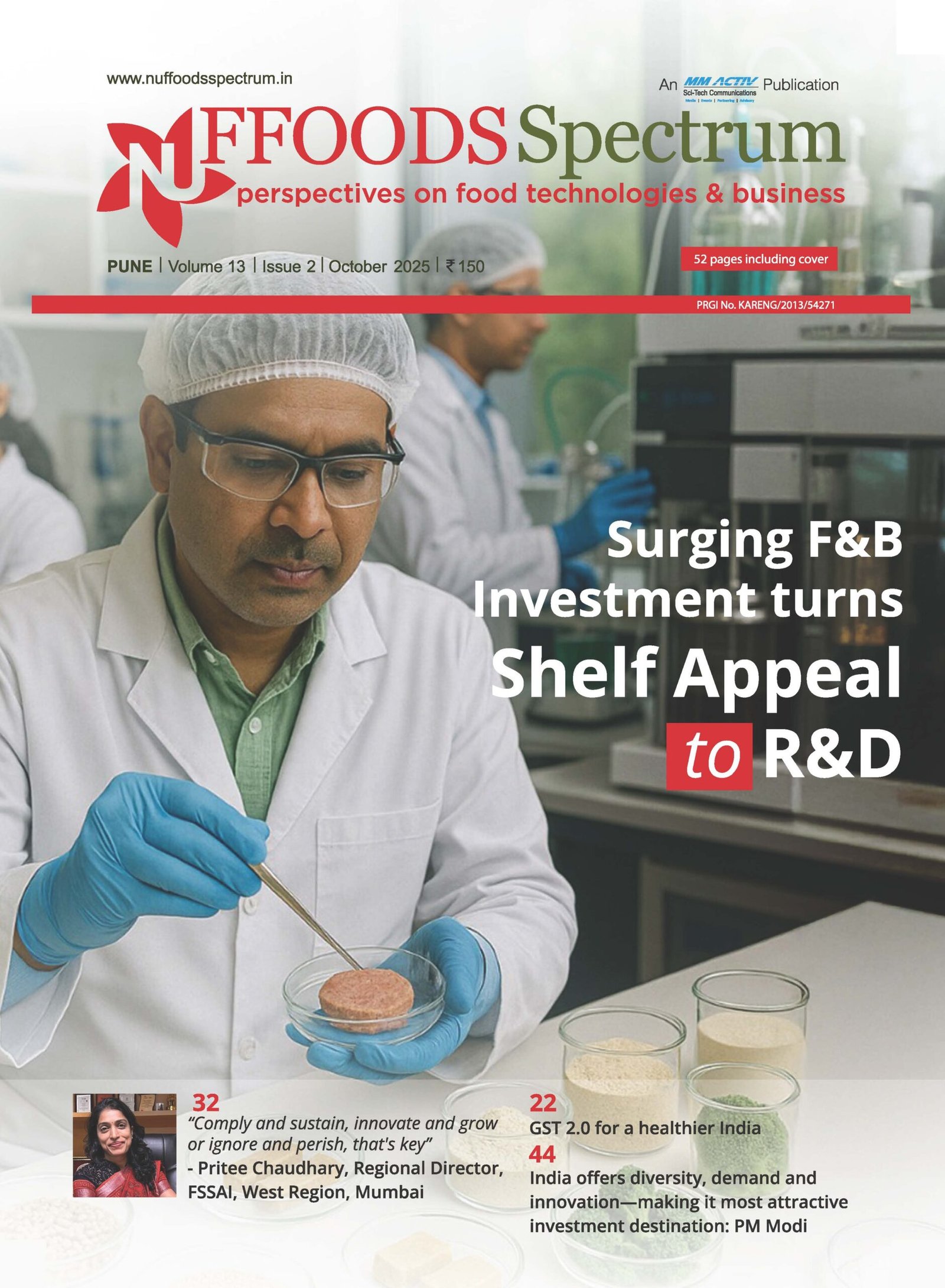Inside BENEO’s new pulse plant: pioneering sustainable protein from faba beans
India’s food and beverage (F&B) startup ecosystem is burgeoning with new-age brands promising healthier, trendier, and more convenient products, with investors raring to fund. Much of this early-stage capital flowed into direct-to-consumer (D2C) plays, where the money was primarily used to acquire customers, expand retail distribution, or boost marketing spends. In the last two years, however, the funding landscape has evolved. Investors are no longer satisfied with branding stories alone. Their focus is, now, on companies that can build strong product differentiation through innovation, in-house manufacturing, and scientific research and development. Evidently, consumers in India are increasingly health-conscious, demanding not just trendy packaging but credible, functional, and science-backed products. At the same time, global demand for nutraceuticals, functional foods, and alternative proteins is rising sharply, positioning India as a low-cost manufacturing hub.
Let’s explore how smart capital is flowing into manufacturing and innovation in Indian F&B and nutraceutical companies, the notable players attracting this capital, investor rationale, and challenges.
Over the last decade, India’s food and beverage (F&B) startup ecosystem has witnessed a dramatic transformation. Fueled by rising disposable incomes, urban lifestyles, and a growing appetite for healthier alternatives, a wave of new-age brands entered the market promising products that were trendier, cleaner, and more convenient than their legacy counterparts. From cold-pressed juices and ready-to-eat millet snacks to protein shakes and herbal gummies, the landscape became vibrant with experimentation.
For much of this period, venture capitalists and angel investors were happy to fund these dreams. According to Tracxn, India saw hundreds of F&B startup deals between 2014 and 2020, with funding crossing the multi-billion-dollar mark, much of it concentrated in consumer-facing D2C brands. However, the bulk of this early capital had a familiar trajectory, it was funneled into scaling distribution, boosting marketing spends, or expanding retail footprints. The emphasis was more on building visibility than on building capability.
But in the past two years, a subtle yet significant shift has emerged in the funding narrative. Investors are no longer swayed by branding stories alone. In a market where copycat products can hit shelves within months, differentiation has to be built deeper, at the level of formulation, manufacturing, and intellectual property. There is an uptick in funding activity for companies building plants, R&D labs, and ingredient innovations, rather than just scaling stores.
The underlying trend mirrors broader shifts in the Indian market. Consumers are becoming more health-conscious, and the nutraceuticals space is reflecting this demand. The India nutraceuticals market was valued at $32.14 billion in 2024, and is projected to grow to $75.81 billion by 2033 at nearly 10 per cent CAGR (Grand View Research). Globally too, the momentum is strong. The worldwide nutraceuticals market stood at $418.2 billion in 2024 and is projected to touch $571.3 billion by 2029, at a CAGR of 6.4 per cent (BCC Research). With its strong base in pharmaceuticals, Ayurveda, and food processing, India is well-positioned to become a low-cost innovation and manufacturing hub, exporting functional foods, probiotics, and clean-label nutraceuticals to global markets. For India, all agree on one thing — double-digit growth driven by demand for supplements, functional foods, and preventive health.

“Presently, India’s Nutraceutical Tech space industry comprises 485 companies, of which 102 have collectively raised $ 623 million in venture capital and private equity. With 31 Series A+ funded players, 9 acquisitions, and 5 IPOs already on record, the sector is steadily maturing. Backed by marquee investors such as Fireside Ventures, 3one4 Capital, Alteria Capital, Wipro Consumer, Sharpp Ventures, Stride Ventures, B Capital, and many more, startups in this space have raised $ 180.3 million in less than three years, highlighting growing investor confidence in this niche sector,” said Abhishek Goyal, Co-founder, Tracxn.
One telling example is India’s probiotics market, which has doubled in the last five years to reach Rs 2,070 crore in 2025 (Economic Times). This growth signals a clear consumer shift toward science-backed nutrition, a category where investors see significant export and scale potential. This is giving rise to a new generation of Indian F&B and nutraceutical companies,ones that are investing in state-of-the-art facilities, proprietary formulations, and cutting-edge R&D labs. For these players, funding is not merely about reaching more customers but about building capabilities that can outlast market fads and withstand competition from both domestic and international giants.
Who’s Investing?
When India’s F&B funding story was dominated by D2C darlings, investors were attracted to the quick growth potential of brands that could capture online buzz, acquire millions of customers through digital ads, and launch new SKUs almost overnight. However, cracks soon appeared. Many of these companies burned through cash without creating lasting consumer loyalty. More critically, they lacked manufacturing control, relying heavily on third-party contract manufacturers that offered little in the way of intellectual property or process differentiation.
By 2023–24, investors had begun to tighten their filters. The focus shifted from pure growth metrics to capability and defensibility. They began evaluating whether a company controlled its supply chain, maintained in-house R&D for continued innovation, could scale manufacturing infrastructure to meet both domestic and export demand, and had a defensible moat beyond marketing alone. This shift has driven a visible increase in funding for capex-heavy, innovation-driven plays, companies that build products, processes, and infrastructure rather than relying solely on branding.
The investors driving this shift are not a single homogeneous group but rather a diverse mix of early-stage venture funds, growth capital providers, family offices, angels, and impact-focused private equity firms, each playing a different role in building India’s food and nutraceutical ecosystem.
At the early stage, funds such as Fireside Ventures, DSG Consumer Partners, Avaana Capital, and Inflection Point Ventures (IPV) typically back consumer-first companies with strong product differentiation. Their focus is on identifying young brands with unique propositions, be it functional gummies, millet-based snacks, or clean-label proteins, and helping them scale with the right mix of capital, branding support, and distribution connections.

In a recent funding round of Rs 15 crore led by IPV, for a guilt-free ice cream brand- NOTO Icecream, Vinay Bansal, Co-founder, IPV highlighted the firm’s vision towards aspiring innovative startups. He said, “At IPV, we are inspired by startups that truly address a real consumer need. Health-conscious individuals often find it difficult to satisfy their cravings without compromising on nutrition, as most ice-cream options available in the market either fall short on taste or on health benefits. NOTO is tackling this gap by offering delicious yet wholesome alternatives. Their focus on redefining guilt-free indulgence positions them as both a scalable and impactful brand.”
Moving to the growth stage, investors such as Sixth Sense Ventures and Sofina come in with larger cheques for companies that have already proven their market fit and are ready to invest in manufacturing plants, R&D infrastructure, and intellectual property portfolios. Their role is critical in transforming promising startups into scalable businesses that can compete not only in India but also on the global stage.
On the other hand, family offices and high-net-worth individuals bring a more personal and sometimes passion-driven dimension to this funding story. For example, the Asian Paints promoter group and Zerodha’s Nithin Kamath have both backed food innovators, signaling a growing interest among India’s business leaders to diversify into health, wellness, and nutrition-oriented ventures. Such investors often provide not just money but also mentorship, credibility, and long-term patient capital.
Finally, impact funds and private equity firms are increasingly drawn to this space by the export potential of Indian nutraceuticals and functional foods. With India positioned as a cost-competitive manufacturing hub, these investors see a long-term play in funding companies that can build global supply chains and cater to the surging international demand for wellness-oriented products.
Together, this mix of investors reflects a maturing ecosystem, one that is moving away from “quick-win” retail expansions toward deep-rooted capability building in innovation, manufacturing, and science-backed differentiation.
Segments Attracting Funding

The innovation-led funding wave in India’s F&B and nutraceutical space is flowing into several high-growth categories, reflecting both investor confidence and changing consumer preferences. Emphasising this, Kannan Sitaram, Co-founder and Partner, Fireside Ventures commented, “As investors, we see immense potential for brands that prioritise product innovation and use high-quality, clean ingredients, since this focus will be a key driver of growth as consumers increasingly take their wellness into their own hands. The nutritional supplements space is gaining strong traction, especially among millennials who are making conscious choices about what they eat and how they manage their physical and mental health. Healthy India has emerged as a powerful consumer theme, with today’s consumers actively investing in their everyday wellness.”
Nutraceuticals and supplements are at the forefront, with startups developing functional gummies, probiotics, plant proteins, and herbal or Ayurvedic blends attracting strong funding. For example, Yu, a Gurugram-based instant meals startup, raised significant capital to expand its functional and preservative-free food offerings.
Food Ingredients and Processing Tech is another hotbed of activity, with companies innovating in alternative sweeteners such as monk fruit and erythritol, plant-based proteins, and millet processing. Troo Good, a millet snack maker, bagged funding to scale its millet-based snack offerings, while Millet Express is expanding its millet-based product line with investor support, demonstrating interest in ingredient-level innovation.
Manufacturing Infrastructure is increasingly attracting investor attention, as companies establish nutraceutical plants, R&D labs, and co-manufacturing hubs to gain control over quality and scalability. The Whole Truth secured funding to scale production of protein powders, muesli, and other functional foods through its in-house facilities.

Similarly, Khetika, a Mumbai-based healthy food startup, raised capital to expand its manufacturing and operational capabilities. “Our strength in sourcing, product innovation, and technology-driven supply chains make them a very promising partner. Indian households are showing a strong preference for clean-label, health-oriented foods, and Khetika stands out by combining nutrition with transparency,” said Adithya Bharadwaj, Principal at Anicut Capital.
Finally, Alternative Proteins & Functional Foods are seeing growing interest from investors as plant-based and fortified products gain traction. High Time Foods raised a substantial seed round to develop refrigeration-free, shelf-stable plant-based proteins and dairy alternatives. Meanwhile, Hyderabad-based agritech startup Our Food raised funding to set up decentralized processing units near farms, producing functional food ingredients while reducing post-harvest losses.
Across these segments, investors are increasingly prioritising capability-building over pure marketing spend, signaling a maturing market where innovation, manufacturing control, and scientific credibility are the real drivers of value.
Three key factors are driving this capital allocation. First is the global export opportunity: with India’s nutraceuticals market itself projected to reach $ 75.81 billion by 2033, investors see the country not only as a vast consumer base but also as a cost-efficient production hub capable of supplying the world’s rising demand for health and wellness products. Second is the push for credibility through science. Today’s consumers are far more discerning, looking beyond packaging and marketing slogans; they want clean-label, functional products backed by clinical validation, which in turn requires companies to invest in in-house R&D labs, robust manufacturing oversight, and quality control systems. Finally, investors are attracted to defensibility. While a flashy D2C brand can be replicated almost overnight, building manufacturing assets, securing patents, and owning proprietary formulations create strong entry barriers that not only protect margins but also ensure long-term competitiveness in both domestic and global markets.
Roadblocks on the way
While the shift toward manufacturing and R&D-led models signals maturity in India’s food innovation ecosystem, the path is far from smooth. The first hurdle is high capital intensity. Unlike digital-first or D2C brands that can scale with modest marketing budgets and outsourced manufacturing, companies focused on R&D and manufacturing must make heavy upfront investments. Setting up a nutraceutical or functional food plant requires multi crore in rupees for land, machinery, quality systems, and regulatory approvals. In addition, R&D-led players must invest in laboratories, clinical studies, and stability testing facilities before their first product even reaches the shelf. These long gestation periods mean founders need access to patient capital and investors willing to wait years rather than months for returns. This capital intensity also makes it harder for smaller startups to enter the space, giving larger corporates or well-funded ventures a relative advantage.
Second is, regulatory bottlenecks. FSSAI regulations around nutraceuticals, supplements, and functional foods remain complex and constantly evolving. Companies face long approval timelines for new ingredients, as well as strict restrictions on the kinds of health claims they can make on labels and advertisements. For startups, this creates uncertainty—products may have to undergo reformulation if regulations shift, or they may get stuck in the approval pipeline for months. In global export markets, companies must also navigate overlapping regulatory frameworks, such as EFSA in Europe or the FDA in the U.S., further increasing compliance costs. This often slows down innovation and discourages smaller players who lack the resources to manage complex regulatory landscapes.
Thirdly, scientific innovations in food and nutrition inherently take more time to validate and commercialise compared to fast-moving consumer goods. For instance, a startup developing shelf-stable probiotics or a novel plant protein must conduct multi-year R&D, perform sensory and safety testing, and often undertake clinical trials to prove efficacy. This process is not only costly but also time-consuming, especially when stability, bioavailability, or palatability issues arise during trials. By contrast, a traditional snack brand can quickly launch multiple SKUs, tweak flavours, and capture consumer attention in a matter of months. This slower scaling timeline means science-led companies must carefully manage cash flows and investor expectations to survive the long haul.
Lastly, the talent gap. India has a growing but still limited pool of food scientists, process engineers, biotechnologists, and regulatory experts. While premier institutions like NIFTEM, CFTRI, and ICAR are producing skilled graduates, the demand for such expertise far exceeds the supply. Companies setting up advanced plants and R&D labs often struggle to hire the right talent to oversee product formulation, quality assurance, and regulatory compliance. This talent shortage also extends to middle-management roles, such as experienced plant operators or lab managers, which are critical for scaling innovations reliably. Without closing this talent gap, India risks slowing down its ability to translate lab-scale innovations into commercially successful global products.
Funding the Future
Despite these challenges, the outlook is bullish. For global FMCG and pharma giants, India’s innovation-led startups could become attractive acquisition targets. With manufacturing capacity and scientific IP already in place, they can plug directly into global supply chains.

The funding narrative in Indian F&B is undergoing a profound change. It is no longer just about how fast a brand can open stores or acquire customers. Instead, investors are rewarding those who can build science-backed, manufacturing-driven, and globally scalable businesses. While addressing the new-age F&B firms of India, Archana Jahagirdar, Founder and Managing Partner, Rukam Capital, a venture capital firm, said, “Success isn’t just about the products you sell, but how you make consumers feel seen, understood, and valued. Today’s market is pushing even traditional categories to rethink their approach—whether through healthier alternatives, transparent communication, or community-driven engagement. For F&B founders, the key takeaway is that building loyalty goes far beyond discounts; it’s about creating meaningful experiences in everyday consumption.”
Whether it is The Whole Truth’s clean-label manufacturing, Our Food’s decentralised processing units, Khetika’s healthy staples, Yu’s preservative-free instant meals, or High Time Foods’ shelf-stable plant proteins- the common thread is clear: capital is now flowing where innovation meets infrastructure. By 2030 India may not just be the world’s kitchen, but also its nutrition lab.
Mansi Jamsudkar Padvekar

